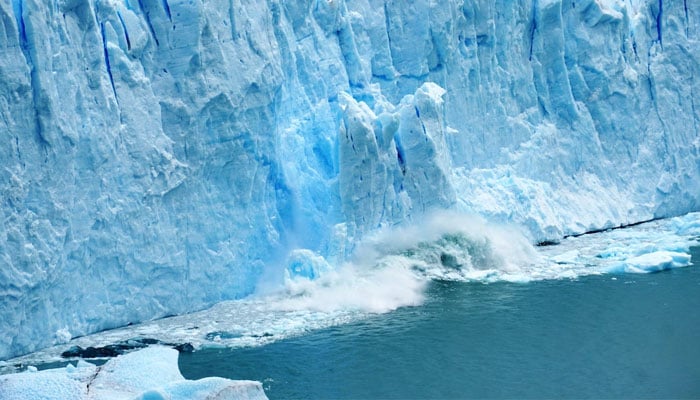Scientists say 'no quick fix' to replace ice loss in Antarctic Sea
"It's going to take decades if not centuries for these things to recover," says Anna Hogg, study's co-author
As a result of rising global temperatures, sea ice in the Antarctic region has decreased to a record low this year, and there is no easy way to undo the harm, experts warned on Tuesday in a new research studying the effects of climate change on the continent.
According to the study published in the journal Frontiers in Environmental Science, the continent's minimum summer ice cover, which fell below 2 million square kilometres (772,000 square miles) last year for the first time since satellite monitoring began in 1978, further decreased to a new low in February.
"It's going to take decades if not centuries for these things to recover. There's no quick fix to replacing this ice," said Anna Hogg, a professor at the University of Leeds and one of the study's co-authors, referring to melting icebergs and shelves.
"It will certainly take a long time, even if it's possible," she told a briefing with journalists.
According to Tim Naish, director of the Antarctic Research Centre at New Zealand's Victoria University of Wellington, who was not involved in the study, this year's sea ice minimum is 20% lower than the average over the last 40 years.
Naish suggests that this translates to a sea ice loss equivalent to a loss of nearly ten times the area of New Zealand.
"In some cases we are getting close to tipping points, which once crossed will lead to irreversible changes with unstoppable consequences for future generations," Naish said.
The study suggested that Antarctica is now more susceptible to extreme occurrences due to global warming brought on by the use of fossil fuels, and the impact is "virtually certain" to worsen, NDTV reported.
Using recent data from research on the Antarctic ocean, atmosphere, cryosphere, and biosphere, it claimed that climate change will "lead to increases in the size and frequency" of heatwaves, ice shelf collapses, and losses in sea ice.
-
Minnesota man charged after $350m IRS tax scam exposed
-
Trump reached out to police chief investigating Epstein in 2006, records show
-
San Francisco 49ers player shot near post-Super Bowl party
-
Ransom deadline passes: FBI confirms ‘communication blackout’ in Nancy Guthrie abduction
-
Piers Morgan finally breaks silence on kidnapping of Savannah Guthrie's mother Nancy
-
Lenore Taylor resigns as Guardian Australia editor after decade-long tenure
-
Epstein case: Ghislaine Maxwell invokes Fifth, refuses to testify before US Congress
-
Savannah Guthrie receives massive support from Reese Witherspoon, Jennifer Garner after desperate plea












